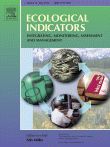Prospects for Sustainable Bioenergy Production in Selected Former Communist Countries
- Publication
- Citation
Srebotnjak, Tanja and Peter Hardi 2010: "Prospects for sustainable bioenergy production in selected former communist countries". Ecological Indicators, 11.
A new publication in the journal "Ecological Indicators" by Tanja Srebotnjak, from Ecologic Institute, and Peter Hardi, from the Central European University in Hungary, examines the potentials for sustainable bioenergy production in Bulgaria, Romania and the former Soviet republics in Central Asia. The study draws on official statistics and modeling results and concludes that bioenergy potentials are highest in Bulgaria, Romania, and Kazakhstan but depend on several factors including crop choice, climatic conditions, availability of suitable land, and the institutional and legal infrastructure.
Together with co-author professor Peter Hardi, Central European University, Tanja Srebotnjak of Ecologic Institute published a review paper in Ecological Indicators on the potential for sustainable bioenergy production in selected former communist countries in Eastern Europe and Central Asia. Growing urgency to address the problems of climate change and energy security coupled with the European Union’s global leadership role motivate the baseline assessment of the potential for sustainable bioenergy production in the most recent two EU member states (Bulgaria and Romania) and the former Soviet republics in Central Asia and the Caucasus (Armenia, Azerbaijan, Georgia, Kazakhstan, Kyrgyzstan, Tajikistan, Turkmenistan, and Uzbekistan) by reviewing the literature and drawing on available data. The paper integrates the monitoring and assessment of ecological and environmental indicators with management practices, and shows that there is still a lack of knowledge and approaches at this nexus. The main factors to be considered by the countries included in our study are: the type of energy carrier, the transportation and production processes, as well as the long-term environmental impacts associated with intensive biomass production. Specifically, the baseline assessment is using typical indicators to describe bioenergy carriers and their production and consumption in thermal or mass units as well as in percentage shares of total renewable energy produced or consumed. Our findings indicate that the potential for developing sustainable bioenergy production is generally small but with considerable cross-country variation. Only Bulgaria, Romania, and Kazakhstan are endowed with the necessary natural, climatic, and economic conditions to develop sustainable biomass productions and markets.




